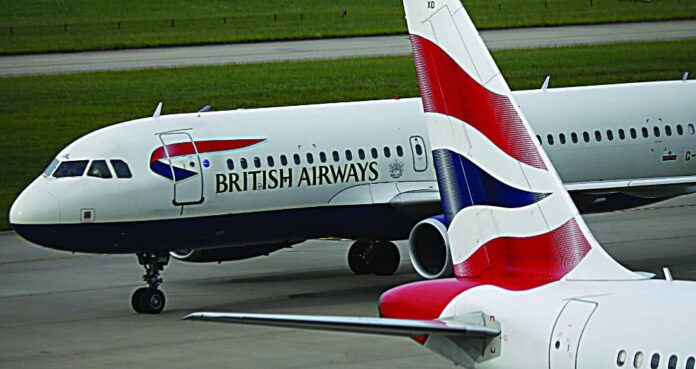LONDON: British Airways owner IAG raised €1.2 billion ($1.43 billion) in a bond issue it said would help it survive a potentially longer than expected travel downturn.
Airlines are counting on a summer travel reboot after a year of minimal income because of coronavirus restrictions, but rising case numbers in some countries and delays to Europe’s COVID-19 vaccine rollout could derail the recovery.
IAG, which is burning through about €185 million a week as a result of the pandemic, has been cutting costs while flying only 20 percent of its normal capacity.
The owner of Iberia and Vueling in Spain and Aer Lingus in Ireland said last month it had sufficient liquidity to ride out the crisis but would continue to explore new debt options. On Thursday, it decided to add to its war chest.
It said the proceeds could be used to withstand a more prolonged downturn or provide “flexibility to take advantage of a recovery in demand for air travel.”
Announcing final terms of the bond, IAG said on Friday that demand was higher than expected, enabling it to raise €1.2 billion, more than the €1 billion originally planned.
The senior unsecured bonds which were issued in two tranches with €500 million due in 2025 and €700 million due in 2029, were priced at a yield of 2.75 percent for the first and 3.75 percent for the second tranche.
HIGHLIGHTS
● The government has relied heavily on borrowing as tax receipts have tanked during COVID lockdowns.
● Government has spent £352 billion in emergency measures, particularly for its furlough scheme of paying the lion’s share of private sector wages for millions of Britons.
● Total state debt currently stands at £2.13 trillion, the equivalent of 97.5 percent of Britain’s total GDP. product, according to the ONS. Such a level has not been seen since the early 1960s.
IAG had started marketing the bonds at a yield of 3.25 percent for the four-year and 4.25 percent for the eight-year, but after recording over €3 billion of demand from yield-starved investors, was able to tighten it significantly by 50 basis points on each.
Such a tightening is relatively unusual in the bond market and the final pricing level represents a significant result for a company facing seven-year borrowing costs in excess of 7.5 percent in September in the midst of the COVID-19 crisis.
In a low rate environment and with economies set to reopen, bond investors have become increasingly keen to buy debt from well-known airlines because it is one of the few sectors still offering a high yield, a source familiar with the deal said.
Although IAG lost its investment grade rating last year after the pandemic wreaked havoc on airlines, progress on COVID-19 vaccinations has led investors to revisit the sector.
Shares in IAG traded down 3.6 percent at 207 pence at 1132 on Friday. The stock has gained 27 percent over the past month.
Lufthansa and easyJet have both tapped bond markets in recent months, with the German airline repaying a big portion of a government bailout after its latest €1.6 billion debt sale and easyJet raising €1.2 billion in February.
BBVA, Goldman Sachs, Morgan Stanley and Santander are managing the IAG issue.

British Airways warns of deepening travel slumpBritish Airways slapped with UK data watchdog’s biggest-ever fine

